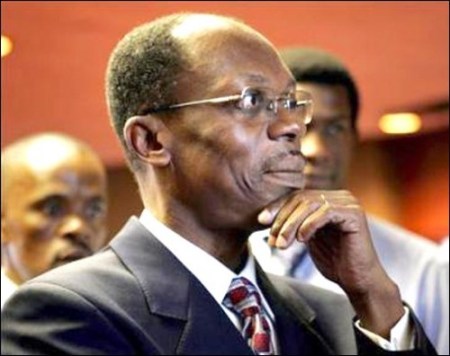The US government has a deplorable history of colluding with US and international business interests to undermine Haitian political and economic sovereignty. Knowing this history is crucial for understanding why it’s so bad that US firms received $98.40 out of every $100 in reconstruction contracts. More broadly, it illustrates why it’s vital to support Haitian-led organizations: because they not only promote local (rather than imposed) solutions, but they also genuinely have Haiti’s best interests at heart.
As the following story illustrates, this is not the case with US policy in Haiti.
US Efforts to Block Haiti-Venezuela Oil Deal
From 2006-2008, the US cajoled and bullied the government of Haiti to prevent it from signing a breakthrough oil deal with Venezuela. Under the terms of the deal, Haiti would join Venezuela’s oil alliance, PetroCaribe, and buy oil from their neighbor at low prices with a measly 1% interest rate. These favorable terms were further sweetened by the offer of an aid package that included building several power plants and giving Haiti 2 million high-efficiency light bulbs that would save money and 60 MW of electricity every year.
The ideologically driven, inhumane US response to this deal is detailed in the Nation article entitled The PetroCaribe Files. Led by a recent Bush appointee, Ambassador Janet Sanderson, the US Embassy in Haiti spearheaded an effort to make sure the deal failed – despite internally acknowledging the benefits to the people of Haiti.
In a series of frustrated cables, she stated: Préval faces “increasing pressure to produce immediate and tangible changes in Haiti’s desperate situation,” but despite the fact Haiti “would save USD $100 million per year” under the deal, Préval “is aware that a deal with Chavez would cause problems with us.” Over several meetings with Préval and other Haitian government officials, Sanderson reports that she stressed the consequences of “the larger negative message [the deal] would send to the international community.”
Later cables make explicit why the US opposed a deal that would so obviously benefit the Haitian people. After meeting with senior Préval adviser Fritz Longchamp, Sanderson wrote that he “betrayed a common trait among Haitian officials in misjudging the relative importance that U.S. policy makers attach to Haiti versus Venezuela.” That is, the US Embassy agreed that this would help Haitians, but prioritized scoring political points in the war of influence against Hugo Chavez over improving lives in Haiti. While the US has every right to make that choice in its own policy, these cables reveal a willingness to coerce the Haitian government into doing so as well. When Préval so much as met with Chavez, Sanderson ranted that he was “off parading with Chavez’ rogues’ gallery.”
In addition to exerting political pressure and issuing veiled threats, Ambassador Sanderson “encouraged” the four US oil companies pumping the gas in Haiti to voice their discontent over the deal to the Haitian government. When it seemed that negotiations between Préval and the US oil companies in Haiti were going to resolve quickly, the Embassy encouraged them to stonewall and drive a hard bargain. The fact that the US oil companies signed on to the deal further suggests that US pressure accounted for some of the reluctance to negotiate.
In Favor of a Haitian-Led Reconstruction
This story demonstrates why the US has no moral legitimacy to oversee the $10.2 billion reconstruction budget: they’re willing to sacrifice improving Haitians’ lives for the sake of political grandstanding and the profit of US firms. Moreover, it should make clear what a US-led reconstruction effort, such as the Interim Haiti Relief Commission, entails: the patronizing denial of Haitian self-determination based on our political priorities.
The US’ persistent unwillingness to let Haiti determine its own future continues to be one of the largest hurdles to reconstruction efforts today. Let this story be a reminder of US priorities in Haiti, and of the need to safeguard Haitians’ rights to formulate their own solutions.
by Nathan Yaffe




 Posted by Nathan Yaffe
Posted by Nathan Yaffe 

